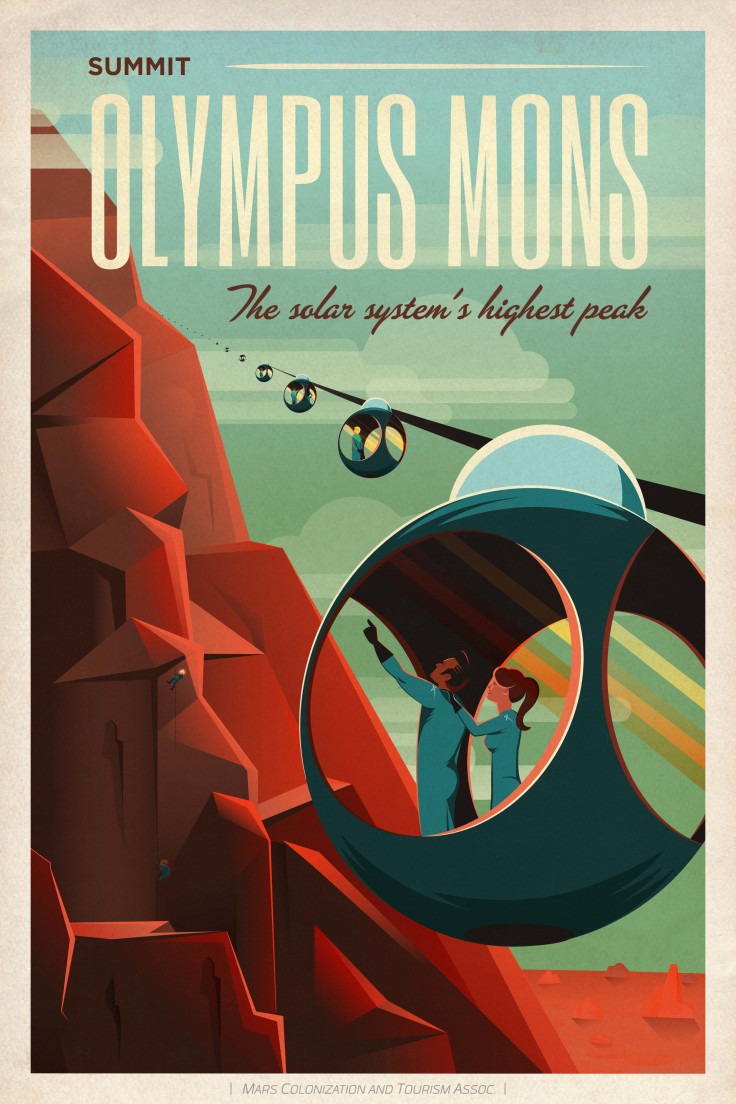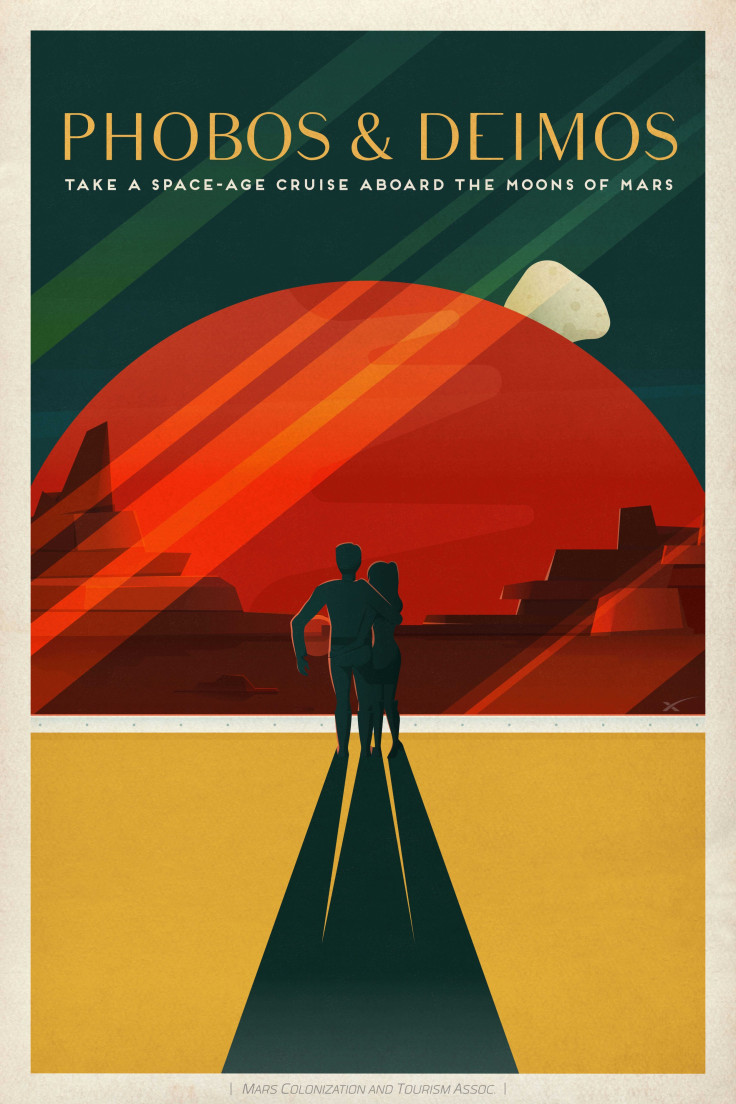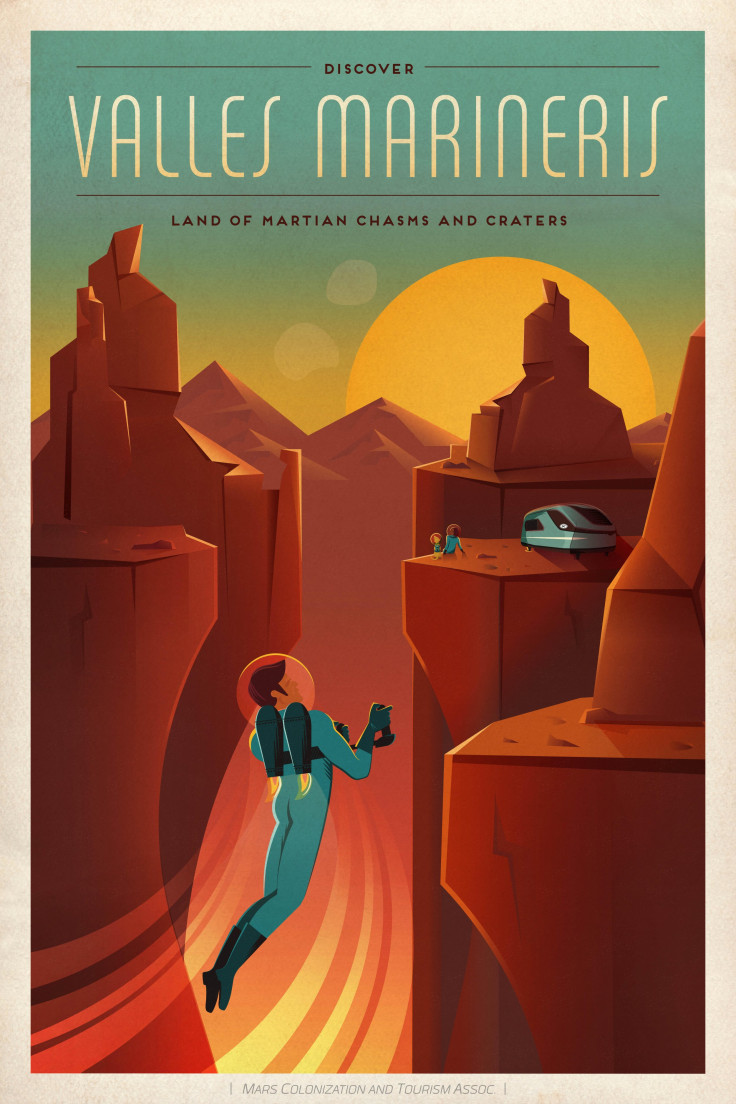SpaceX Mars Travel Destination Posters Make Us Want To Book A Trip To Olympus Mons

SpaceX, the aerospace manufacturer founded by Elon Musk, is working hard on developing a spacecraft that will be used by NASA astronauts traveling to the International Space Station. But since this is Elon Musk we're talking about, the company also has its sights on a much more distant destination: Mars. While we're still years away from a journey to Mars -- NASA is aiming for the 2030s -- we can't help but think about a trip to the red planet. SpaceX commissioned a set of Martian travel posters that perfectly capture that sense of exploration and are just a hint of Musk's ambitious plans.
The three travel posters draw you in with a retro sci-fi feel and could easily be 1950s pulp covers. They're reminiscent of NASA's Exoplanet Travel Bureau poster set released in January and highlight some of the more fascinating features of Mars. The Mars Colonization and Tourism Association posters feature Valles Marineris, Olympus Mons as well as Phobos and Deimos. Valles Marineris (Mariner Valley) is a massive canyon system that makes the Grand Canyon seem downright tiny. It spans 2,500 miles -- the length of the United States -- with a depth of up to 4 miles, according to NASA. Olympus Mons is the largest volcano in the solar system, with a diameter of 347 miles and a height of 16 miles. Last, but not least, are the two moons of Mars: Phobos and Deimos. The moons are likely captured asteroids that once called the asteroid belt home.

The posters could be a very small tease to SpaceX's Mars plans. Musk said in a Reddit AMA that he hoped to unveil the Mars Colonial Transporter by the end of 2015. There was also the news that he wants to bring the Internet to the red planet. As for when people will set foot on Mars, Musk thinks it could be in 11 or 12 years.

© Copyright IBTimes 2024. All rights reserved.




















